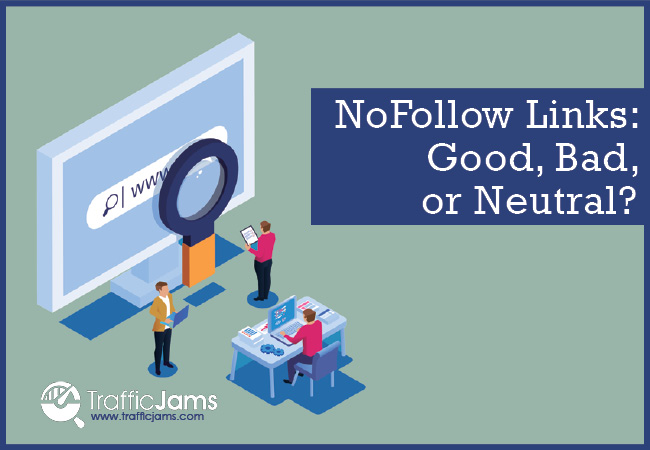SEO is essential to any business that expects to flourish in the modern age. A company may offer exceptional service, but users must be able to find a brand in Google’s SERP (search engine results page) or all that business potential is wasted. While Google’s algorithm is largely secretive, there are many tips and tricks to boost search ranking. One important factor is linkbuilding, or increasing the number of links on other webpages (inbound, or backlinks) that point toward your own.
In many cases, these links improve your Authority and Relevance in Google’s algorithm, ranking your site higher on the SERP. It may seem that any backlink will boost a page’s position in the SERP, but not all links are equal. Links with stronger authority (.edu, .gov .org) are naturally more effective in strengthening search ranking in the eyes of Google because the search engine sees them as being more credible. And then, there are nofollow links.
What (And Where) Is a Nofollow Link?
A nofollow link (as opposed to a dofollow link) refers to any inbound link that does not serve to bolster search ranking in an effective way. HTML incorporated these links in order to reduce spamming and punish those responsible for it. While links can be specifically marked as nofollow within the coding of a webpage, nofollows also appear in other places. Some of the most common examples of nofollow links are those posted to social media channels. Although these links may be effective in driving traffic to a website (especially if these social channels have a high following) they have little to no effect in boosting a page’s position in the SERP. Recently, however, nofollow links have earned a reputation for being more useful than originally thought.
Neutral ≠ Negative
As mentioned, nofollow links don’t directly help a website’s SEO. As much as we would love to have the links we post on social media to boost position in the SERP, they simply do not. Nofollow links, however, don’t carry any penalty, either. So, although they are not the most helpful links to boost a page’s ranking, they have no directly negative effects, and can be viewed as neutral in terms of SEO.
Fighting the Stigma
A large sect of the SEO community, however, believes in the indirect power of nofollow links. The most apparent benefit is that nofollows still serve as referrals, even if they don’t help with SEO. All traffic to a website is valuable, and referral traffic is especially coveted. Any user directed towards a site yields the possibility of a conversion. Even if a nofollow link doesn’t assist in site indexing, it can still be beneficial overall.
Additionally, some opinion-leaders believe that one link will help generate another, and so on. This is often described as a domino effect – if a website with high authority links to your site, chances are that another will follow. Although these backlinks may not assist with SEO, they can certainly add value to a site and assist in linkbuilding.
The Bottom Line
Although nofollow links seem at first glance to be of little importance, they should not be ignored. A link in a tweet may not boost your search ranking, but it will still push traffic to your site. In theory, nofollow links are useless when it comes to a site’s SEO, but they carry a hidden value. At the end of the day, webmasters shouldn’t write off any link, nofollow or otherwise.
Digital strategy can be confusing. If your business is looking for innovative and effective ways to improve your online presence, Traffic Jams can help. Call us at (855) 599-3999 or contact us online and to learn more about how we can take your company to the next level.

